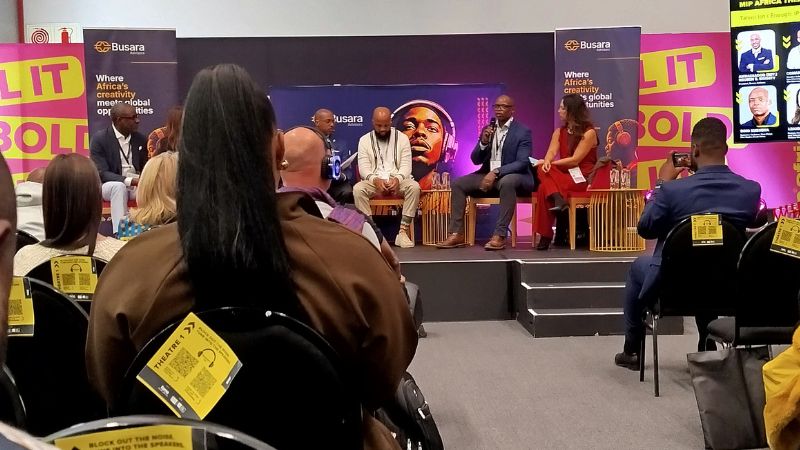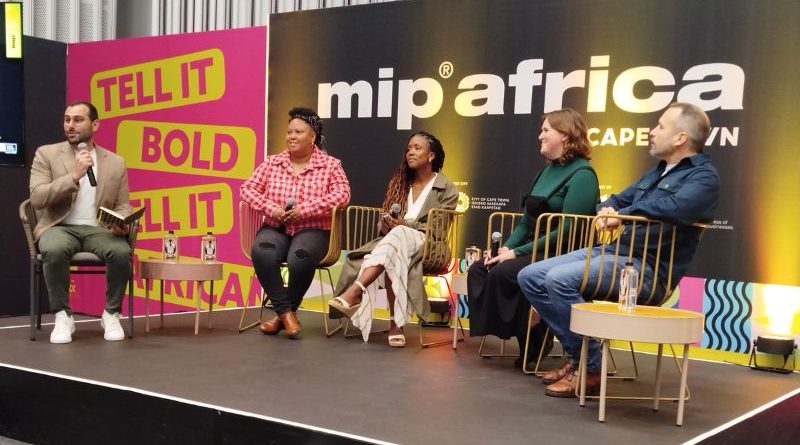The Art of the Deal: IP, AI, and Independent Filmmaking at MIP Africa
As a key component of this year’s FAME Week, MIP Africa once again served as a vital hub for the African and international film and television industry. The event, held in Cape Town, was a microcosm of the creative landscape: a dynamic, passionate space where deals are made, connections are forged, and the challenges of the industry are confronted head-on. This year, the addition of noise-restricting headphones was a welcome, thoughtful touch, allowing attendees to fully immerse themselves in the rich tapestry of discussions in the busy conference space.
The Ever-Present Shadow of IP
Intellectual Property (IP) remains a constant, and often misunderstood, concern for filmmakers. It was a recurring theme in the conference sessions, highlighting a critical disconnect. While industry veterans and legal experts discussed the intricacies of copyright law, many independent filmmakers seemed to view IP as an abstract, almost bureaucratic, hurdle rather than the foundation of their future revenue.
This is a crucial point: a filmmaker’s work is their IP, and understanding its value prospect is paramount. Without this knowledge, they are at a significant disadvantage when negotiating with distributors, platforms, and co-production partners. The conversations underscored the urgent need for better education, empowering creators to see their IP not just as a creative expression, but as a tangible asset that can be monetized, licensed, and protected.
The AI Revolution and Legal Labyrinth
The rise of AI has added a new layer of complexity to the IP landscape, a topic that was front and center at this year’s event. AI-generated content raises profound new legal questions about authorship and copyright. Who owns the copyright for a script or an image created by an AI? The user who provided the prompt? The developer of the AI tool? The original artists whose work was used to train the algorithm?
The situation is further complicated by cross-border discrepancies, where different jurisdictions are adopting wildly different legal stances. For African filmmakers operating on a global stage, this legal uncertainty presents both a risk and an opportunity. The discussions at MIP Africa provided a platform to explore these new challenges, with experts sharing insights and emerging talent grappling with the practical implications for their work.

The Art of Independent Filmmaking
Beyond the corporate stands and formal meetings, the true heart of MIP Africa was found in the independent filmmakers—the artists driven by passion, grit, and an unwavering determination to tell their stories. These are the individuals who operate on shoestring budgets, often activating local communities and relying on profit-share models to compensate their dedicated cast and crew.
For them, filmmaking is a labor of love, a sacrifice that goes far beyond a 9-to-5 job. The authenticity of their work, born from this struggle, is a powerful antidote to the often sterile, data-driven content of major studios. This is where the magic happens, in the hallways and at the coffee stations, where filmmakers connect with potential partners who share their vision and respect their commitment.
A Space for Connections, Not Just Sales
While the sheer number of stalls at MIP Africa can be overwhelming, with some appearing to lack a clear purpose beyond offering a place to sit or a free snack, their value lies in the networking they enable. The true currency of the event is not the popcorn or the branded tote bag, but the serendipitous encounters that lead to genuine collaborations.
It’s a space where a two-degree-of-separation rule often applies, and familiar faces from across the continent and beyond reconnect. These informal meetings, away from the structured pitches and presentations, are where relationships are built and ideas are refined. The insights gained from a five-minute chat with a seasoned producer or an emerging director are often more valuable than a dozen formal presentations.
This year’s MIP Africa, while feeling like “more of the same” in its format, solidified its position as an essential event for the African film and television industry. The ability to network, meet high-profile figures, and get expert insights on pressing issues like AI and IP protection is invaluable.
The event, as part of FAME Week, is a crucial space where the industry’s past, present, and future intersect, providing a platform for both established voices and the next generation of African storytellers to connect, learn and grow.




